What to know before working in
Venezuela
- If you speak Spanish this tip sheet probably isn’t going to help you much, since you’ll figure out what the deal is in a hurry.
- Due to currency controls the US Dollar trades at about a 20% premium when you use cash. Accordingly if you plan to bring home souvenirs or you’re a company man who wants stretch the GE dollar, bring green backs. The official rate in late 2004 is 1917 to 1. That’s the rate you get when you use your plastic. The rate you can change cash for at the hotel desk is 2300 to 1 and if you know which shops want to buy dollars you can get 2500 or more. I suggest you change your money there and spend your bolivares in the restaurants and bars.
- As in other third world countries pre-paid cellular is the norm. There are two main CDMA providers, Telcel and Movilnet. Movilnet will allow you to call 0800 numbers so you’ll be able to get DialComm from your handset. Bring one of your old Verizon phones and have it activated which will cost around $75, or supposedly you can roam with your Verizon phone, but I’ve no idea what that will cost and it's not been a reliable option for me. There are GSM providers as well. Digitel on the much of mainland, InfoNet in the Maracaibo area and Digicel on Isla Margarita, but you can’t call 0800 numbers with their service. I have an “unbranded” phone, so I can’t attest to whether or not your Cingular phone will accept any of the local flavors of SIM card. There are no free local or 0800 number calls from the hotels so be prepared for a very long and excruciating expense process unless you opt to go cellular. My prepaid provider of choice is Digitel. You can set up your voicemail box in English, but inquiring as to your credit balance can only be done in Spanish as of the time of this writing. You will have to visit a dealer to buy a SIM card and submit thumb prints on the application.
- Renting a car may or may not be in your best interest. Taxis are cheap and the locals drive like they are possessed by demons. Red lights are of little or no meaning to a small but very visible portion of the population. Lane observance is casual at best. Many intersections in urban areas are unguarded and the right of way belongs to whomever occupies the contested space first. Around Maracaibo they don't even bother with the expense of painting the lanes, and ignoring traffic signals is the norm. Drunk driving is embarrassingly common here.
- The locals are patient, so the language barrier isn’t going to get you into too much trouble. Be friendly. Smile alot. If you know a little bit of Spanish you’re in for a shock as these folks swear at each other as a manner of greeting. Some of the first Spanish I learned was the dirtiest and I’ve heard it often.
- There is an 8 hour minimum work day. Talk to the MES about it.
- The local electrical grid runs 60Hz and the wall outlets are 120V. I’ve seen little besides American style wall outlets, but that may not hold for all locations and older buildings lack the three prong sockets required by your laptop charger.
- If you’re going to Punto Fijo then Aruba will be your preferred point of entry to South America. The flight to Punto Fijo is short and the airport is not only nicer and safer than Caracas, but everyone speaks relatively good English in Aruba.
- It is not advisable to walk the streets late at night in poor neighborhoods. Just like in the states firearms are readily available and because of the poor performance of local law enforcement agencies I’m told that muggings are common. I’ve not had a problem, but since the locals were concerned for my safety, there must be at least a little truth to it.
- Don’t snigger at the security guards. Yes those ARE single shot 12gauge pistols, so wait until you are at least 100 feet away before you burst into laughter. You will see the occasional cheap submachine gun, and the army sometimes has their people outfitted with battle worthy combat rifles, but this is rare. In any case if guns make you nervous then Venezuela will not be your cup of tea.
- I had no problems with the tap water. Your mileage may vary.
- Gasoline is virtually free.
- Beer (cervesa) is quite cheap. You can buy a case (caja) of cans (latas) for less than 15,000 Bs. Disposable bottles (botellas desechables) are a little more expensive, and for the ultimate in cheap you can buy cases of returnable bottles (botellas retornables).
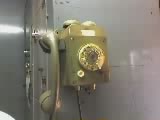

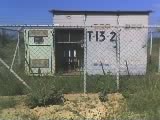

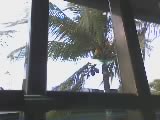
A few pics from Venezuela.
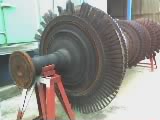
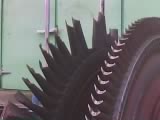
What every insurance adjuster fears most.